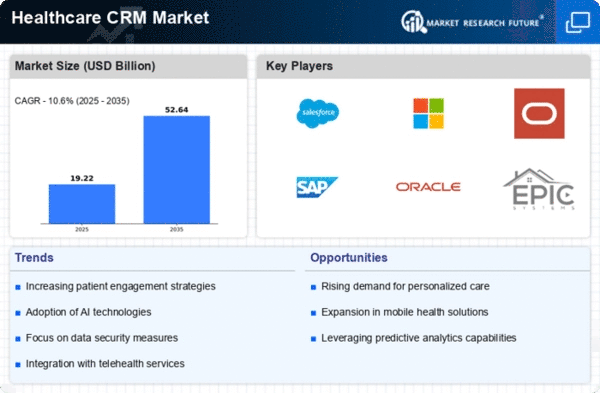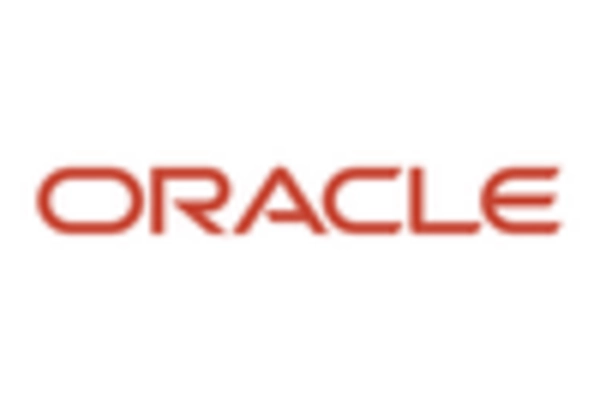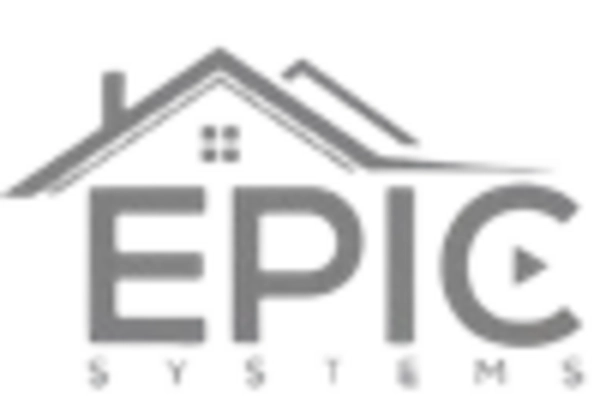Market Share
Healthcare CRM Market Share Analysis
Healthcare customer relationship management (CRM), which increases patient engagement and hospital operations, has evolved with patient-centered care. Companies use a variety of tactics to compete and profit from the growing demand for efficient healthcare CRM systems. CRM solutions for healthcare are essential. Businesses provide healthcare professionals with features and capacities. They include appointment scheduling, patient data management, and healthcare-standard communication tools. CRM customization enables healthcare firms to have operationally relevant CRM technology. Maintaining healthcare technology integration leadership is vital. Integrating electronic health record systems helps enterprises to create a cohesive patient information environment. Integration increases data accuracy, lowers duplicates, and coordinates patient care, making CRM systems more appealing to healthcare professionals. A patient-centered approach is crucial. Companies design CRM systems with patient experience in mind. Personal interactions, appointment reminders, and health data are provided via these technologies. Patient happiness, loyalty, and healthcare community word-of-mouth increase with patient-centered tactics. Establishing excellent healthcare provider relationships is essential. Businesses help hospitals, clinics, and healthcare systems evaluate patient engagement requirements. Product development, clinical validation, and healthcare CRM system adoption benefit from collaborations. Negotiable data security and regulatory norms are impossible. HIPAA compliance reflects a company's dedication to patient privacy. Maintaining healthcare providers' confidence and CRM system installation requires strict security. Companies invest in training because skilled personnel are needed. Healthcare personnel learn CRM, patient engagement, and data management in these programs. Skilled staff enhance patient experiences and healthcare CRM setups. An easy-to-use interface is essential. Healthcare staff may utilize CRM systems with simple interfaces. Accessibility across devices and platforms aids healthcare CRM adoption and integration. Modern healthcare uses telehealth. Telehealth and remote patient monitoring are being integrated into CRM systems to completely include patients. CRM technology is important to contemporary healthcare in this strategy, which supports virtual healthcare. Continuous CRM software development is essential. Businesses study and develop CRM systems to improve security, functionality, and effectiveness. CRM adoption and user satisfaction benefit from timely customer support and software upgrades. Healthcare firms have diverse sizes and budgets, so they may pick affordable and scalable solutions. To do this, pricing must fit small practices and major healthcare businesses. CRM should adapt to healthcare firms' changing demands. Scalable solutions accomplish this. Powerful data analytics and reporting are essential. Healthcare data research gives companies valuable information for CRM systems. CRM systems benefit from strategic decision-making, quality improvement, and healthcare operational efficiency analytics.



















Leave a Comment